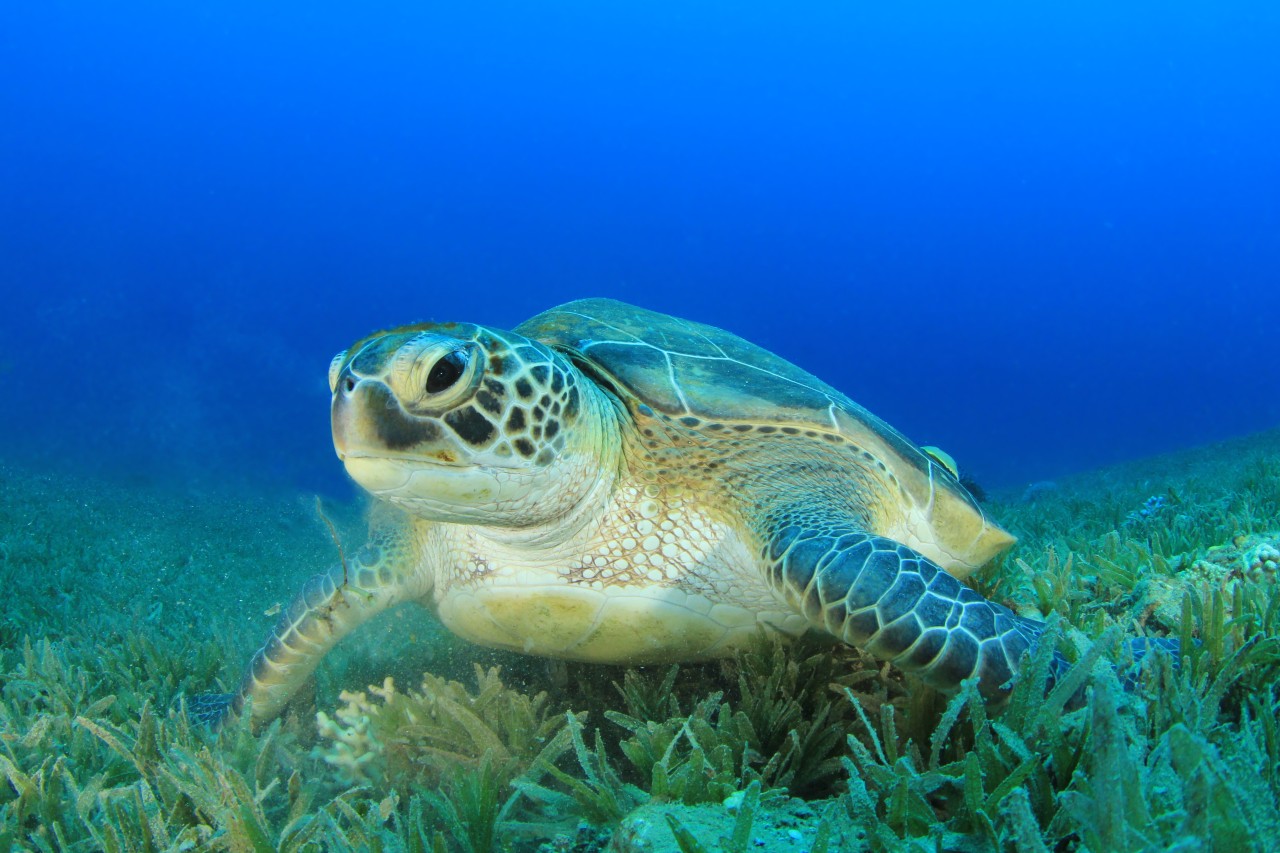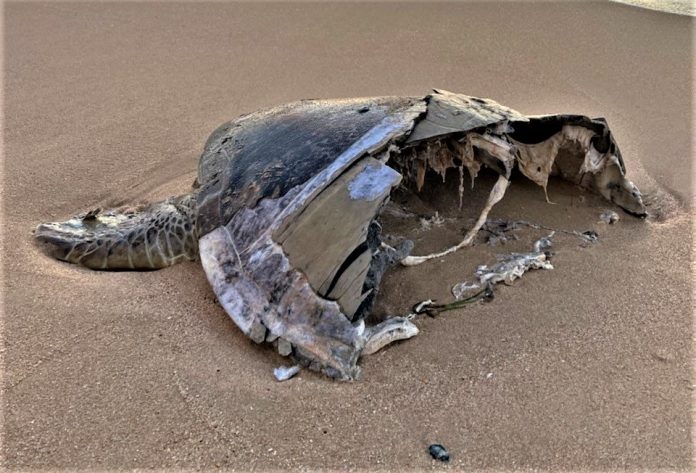A grisly discovery on a Sunshine Coast beach left surfers and early morning walkers wondering what could be lurking in the ocean.
The bottom half of an adult male green turtle, measuring about a metre in length, was sprawled out on the golden sands of Dicky Beach on Thursday morning.
At first it looked as though the turtle had been bitten in half by a ravenous tiger shark.
Photographer Marcus Lane immediately sent the images to Sunshine Coast wildlife expert Brian Coulter, who then notified Sunshine Coast Council.
Mr Coulter said that while “tiger sharks are designed for eating turtles”, he thought a boat strike more likely for the death, with sharks feeding on the carcass afterwards.
 “If it was a tiger shark that’s done the damage, you would see the bites,” he said.
“If it was a tiger shark that’s done the damage, you would see the bites,” he said.
“You wouldn’t get an enormous tiger shark that would come along and just bite a turtle like that clean in half. You would see other bites and scoring to the carapace, which is the top of the shell.
Help keep independent and fair Sunshine Coast news coming by subscribing to our free daily news feed. All it requires is your name and email. See SUBSCRIBE at the top of this article.
“It’s more likely a boat strike and then something has had a go at it afterwards.
“It’s a very common thing to happen.”

A Sunshine Coast Council spokesperson said expert assessment agreed, suspecting the initial injury was a propellor strike, possibly caused by a cargo ship.
The Queensland Government, through the Department of Environment and Science, is the responsible agency for the management of stranded marine life, but the spokesperson said that as the animal was deceased, Sunshine Coast Council then took responsibility for disposal of the carcass.
“As this carcass was under 2m council, as per policy, buried it at the base of the dune, on Dicky Beach,” they said.
“A marine stranding form has been submitted to the Queensland Government Database StrandNet.
“Council’s highly qualified turtle conservation officer attended and collected data on the turtle before it was buried.”
Mr Coulter said he believed the female turtle had been healthy before its disastrous end, as few barnacles or parasites were visible, and the reptile had been washed ashore with the tide.
“I used to run the wildlife rescue unit at Australia Zoo and sea turtle strandings are a pretty common occurrence,” he said.
“Whenever you get these easterly winds, anything that’s sick or injured tends to get brought in (on the current). So, sea snakes, we’ve had whales in the past, dolphins, turtles – you name it.”
If you see a stranded marine animal, alive or dead, report it immediately by calling the Department of Environment and Science on 1300 130 372 and follow the advice of wildlife officers.





